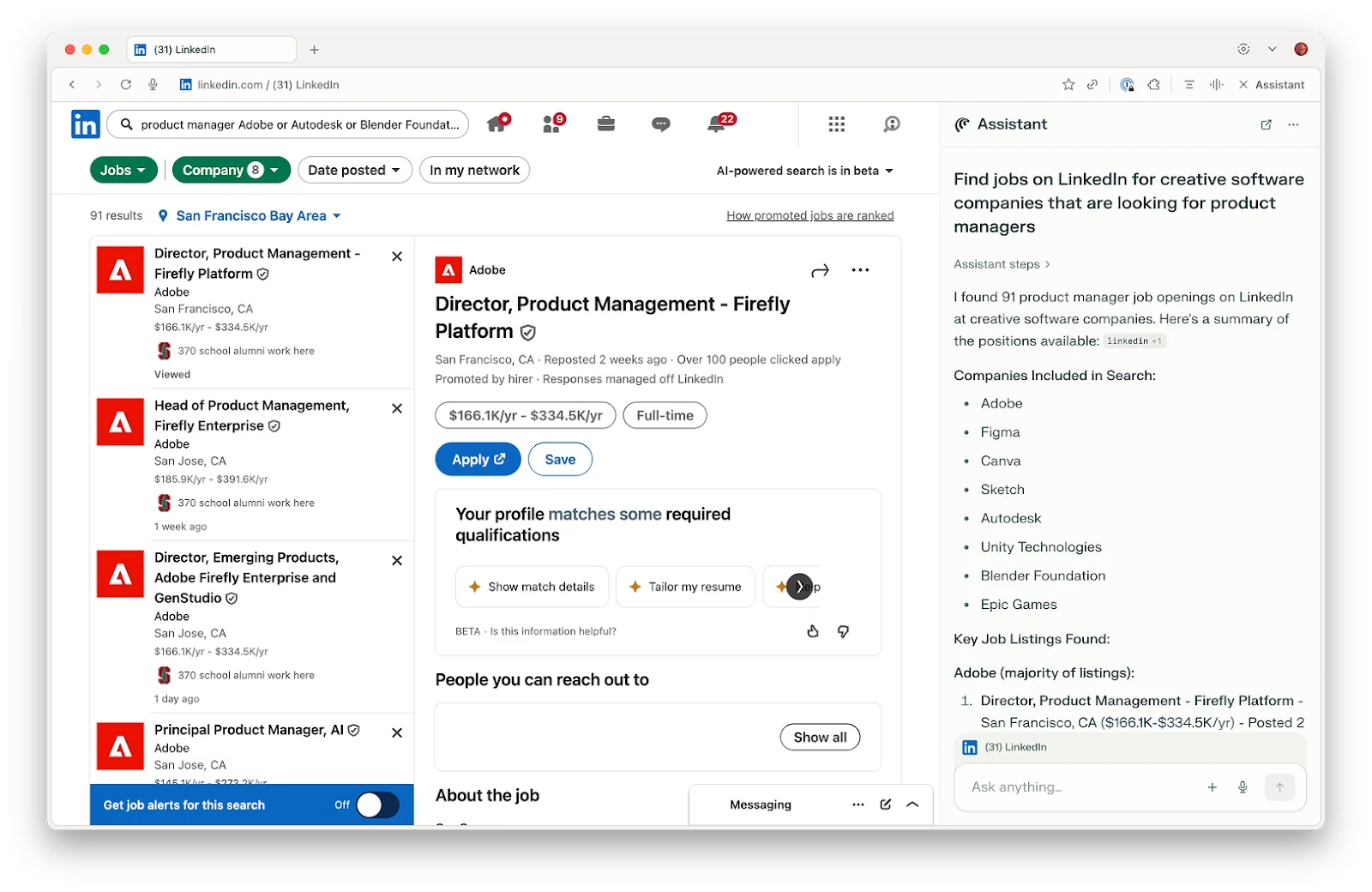Perplexity AI's Comet Assistant: Redefining Web Navigation with Agentic AI and Unparalleled Privacy
Perplexity AI has launched its groundbreaking Comet Assistant, an agentic AI browser that aims to fundamentally transform how users interact with the web and manage their digital workflows. Unveiled on July 9, 2025, Comet directly embeds a context-aware large language model (LLM) into the browsing experience, setting a new standard for productivity and intelligent automation. Currently available to everyone for free, this innovative browser is clearly targeting enterprise users, digital professionals, and tech-savvy organizations seeking advanced, AI-driven solutions for complex tasks.
Core Capabilities and Integrated Features
At its heart, Comet Assistant is designed for seamless, intelligent integration into daily digital work. Its always-accessible side panel functions as an agentic AI sidebar, capable of tasks like summarizing emails, efficiently managing numerous tabs, scheduling meetings, and drafting detailed communications. All these actions happen within the immediate context of your current browsing session, making it incredibly intuitive. The browser also boasts an AI-first search experience, defaulting to Perplexity's powerful answer engine. This means users receive real-time, citation-backed answers directly within the browser interface, sidestepping traditional lists of links.
Context awareness is a significant differentiator for Comet. It maintains memory across various tabs and even different sessions, allowing for follow-up questions and actions based on previous activity. Imagine comparing product specifications from multiple open tabs, then having the assistant draft an email summarizing those findings, or even booking a meeting using contextual data—all without ever leaving the browser. Furthermore, built on Chromium, Comet ensures a frictionless transition for existing Chrome users, supporting all their familiar extensions, bookmarks, and settings. With one-click integration for Gmail and Calendar, the assistant can automate email drafting and meeting scheduling directly from the browser, which is a huge time-saver. Beyond that, it leverages AI for intelligent tab grouping, workspace management, and automating repetitive research or workflow tasks, significantly streamlining complex projects.
Enterprise-Grade Privacy by Design
In an era where data privacy is paramount, especially for business adoption, Comet Assistant stands out with its robust, local-first privacy model. All user data, browsing history, and AI queries are stored exclusively on the user's device. Crucially, no personal data is sent back to Perplexity for model training, and device-level encryption ensures compliance with stringent regulations like GDPR and CCPA. This privacy-by-design approach addresses a critical concern for enterprises considering a switch to an AI-powered browser, providing a secure foundation for sensitive workflows. The browser is currently available on Windows and macOS, with an iOS beta also in circulation, demonstrating its commitment to cross-platform accessibility.
Performance, Expert Reviews, and Market Reception
Early feedback and expert reviews highlight substantial productivity gains for Comet users. Reviewers frequently point to significant time savings and a marked reduction in context-switching, as the assistant automates tasks like research, email drafting, and cross-referencing that would typically demand multiple applications or manual copy-pasting. Compared to its rivals, such as Chrome with Gemini, Edge with Copilot, or even Arc, Comet is recognized for its superior deep context awareness, persistent memory across tabs, and truly agentic automation capabilities. These features are generally less integrated or entirely absent in competing browsers.
Experts praise Comet's minimal and non-intrusive interface, noting that the assistant is "always just there when needed, but not distracting." Many describe the browser as a "game changer," particularly for digital work that is research-heavy or communication-centric. As of November 2025, the invite-only launch for Perplexity Max subscribers has successfully generated considerable buzz among enterprise users and AI enthusiasts, who foresee the browser’s transformative potential for digital workflows. Early adopters specifically laud the substantial productivity improvements and frequently highlight the seamless integration with Gmail and Calendar as a major advantage. However, despite its compelling strengths, Comet faces the formidable challenge of persuading enterprises to switch from deeply entrenched browsers like Chrome and Safari, which together command over 80% of the market. Overcoming existing IT inertia and clearly demonstrating a compelling return on investment will be crucial for broader enterprise adoption.
Comparative Landscape of AI Browsers (2025)
To fully appreciate Comet's unique position, it's insightful to consider how it stacks up against other AI-enabled browsers on the market as of 2025.
| Feature | Comet (Perplexity) | Chrome + Gemini | Edge + Copilot | Arc (OpenAI) |
|---|---|---|---|---|
| Built-in LLM | Perplexity (multi-LLM) | Gemini | Copilot (GPT-4) | OpenAI (limited) |
| Context Awareness | Page + tab memory | None | Partial | Basic |
| Gmail Integration | Yes | No | No | No |
| Extension Support | Yes (Chromium) | Yes | Yes | Yes |
| Tab Grouping via AI | Yes | No | No | No |
| OS Support | Win, macOS (iOS beta) | All | All | macOS, iOS |
This table clearly illustrates Comet's leading edge in critical areas such as deep context awareness, native Gmail integration, and AI-powered tab grouping—features largely absent in its immediate competitors. While other browsers integrate LLMs, Comet’s agentic architecture and persistent memory provide a more integrated and proactive user experience.
The Future of Digital Productivity
Comet Assistant marks a significant evolutionary leap in browser technology. By seamlessly integrating agentic AI with a privacy-first design and comprehensive workflow automation, it sets a new benchmark for productivity tools within the digital workspace. Its unique combination of context-aware LLMs, persistent memory, and enterprise-grade privacy positions it as a powerful contender to redefine how professionals interact with information and manage their daily tasks. The journey to widespread adoption may involve navigating established market players and IT departments, yet Comet’s distinctive capabilities strongly suggest a future where browsers are not just gateways to the internet, but intelligent agents actively assisting in every facet of our digital lives.
